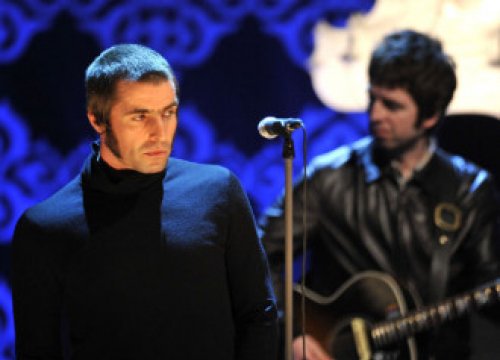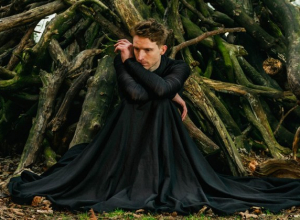Fritz Lang
Fritz Lang
By Matt Langdon
Excellent
Contempt (or Le Mépris, for you purists out there), directed by Jean-Luc Godard in 1963, is a superlative film about many things, including the making of a film, the break-up of a married couple, and the parallels between the contemporary New Wave world (of 1963) and the classical (Old Wave) world of Homer. The basic story, based on novel by Alberto Moravia, is this: Director Fritz Lang (playing himself) is in the process of directing a film version of Homer's Odyssey. Lang has already shot some scenes, but his boorish film producer Jeremy Prokosch (Jack Palance) is upset with the results so he has fired most of the crew and hired a playwright named Paul (Michel Piccoli) to do some rewrites. Paul arrives in Rome with his beautiful wife Camille (Brigette Bardot) and over the course of a couple of days - in which they travel to Capri - everything goes wrong for Paul, who loses Camille to Prokosch and who decides that rewriting the Odyssey is too big a task considering that his own life has taken a heartbreaking turn. Contempt, however, is not a movie about making a movie as much as it is a movie about a disintegrating relationship. The center piece scene is a 30 minute passive/aggressive marital fight between Paul and Camille that takes place in a small apartment. The scene is a very economical piece of filmmaking that unfolds in real time. On first viewing this scene can be maddening because it doesn't seem to go anywhere, and it's difficult to figure out what Camille and Paul are fighting about. Their grief seems to come from someplace else. And maybe there is a past we don't understand, but what Godard is presenting us with is a failed relationship in the modern world: One where gallantry, romanticism and, more importantly, communication have failed. On the surface the film also shows how difficult it is for an art house director to get a film made with a Hollywood film producer: especially if the film is based on such a classic as Homer's Odyssey. Jack Palance gives a very funny performance as the egomaniacal film producer who can only see profit in the venture. He also gets a few humorous lines: When Lang comments on a Greek story, Palance reaches into his coat pocket and says, "When I hear the word culture I get out my checkbook." There is an irony also to Palance's character because it was well known at the time that Godard was having trouble with the film's real producers: Carlo Ponti and Joseph Levine. They insisted that Godard include a nude scene with Bardot so he went back and shot a scene with color filters in which she talks to her husband in the nude. It's a much more intellectual scene than a sexy one and, if anything, it clearly shows that Godard won the battle on that issue. Unlike almost all of Godard's film in the 1960s, Contempt is much more heartfelt than intellectually removed or self reflexive. No doubt, some of this can be attributed to Godard's split from his then wife Anna Karina, which had to have some kind of personal affect on him. But part of the reason too is because of Georges Delerue's distinctively melancholic score, which consists of two mood-setting pieces that are shuffled and repeated seemingly at will about 20 times throughout the film. Still the film does have some self reflexive moments. In many instances Godard comments upon many things in literature from Dante to romantic poetry and films that have influenced him like Roberto Rossellini's Voyage in Italy and Howard Hawks' Hatari!,as well as nods to his own films. Best of all is the gorgeous color Francscope (similar to CinemaScope) cinematography done in anamorphic 2.35:1 aspect ratio by the legendary D.P. Raoul Cotard and the slow burning pace, which is a desirable quality missing from cinema these days. The images are so seductive, in fact, that viewers may miss some of the complexity and issues about the classical versus the modern world. The Criterion Collection DVD is exemplary in all categories. There is an informative commentary track by film scholar Robert Stam and a second disc full of all kinds of goodies. The two best are a 53-minute conversation between Godard and Lang titled The Dinosaur and the Baby and a 10-minute interview with Godard in which he stands at a microphone with sunglasses on and tells an interviewer what he thinks of critics. There is also a short doc on the difficultly of dealing with Bardot's fame during the shoot, a short on Fritz Lang, and a recent interview with Raoul Coutard. There is also an enlightening five minute comparison between the inferior full-frame 1.33:1 transfer of the film (long available in video) versus the widescreen letterbox transfer, which mirror the director's true intentions. All in all this is a stunning DVD and is not-to-be-missed by any Godard fan; something we should all be by now.
Fritz Lang
Occupation
Actor
Suggested

Leisure Festival - Dreamland in Margate
On the same day that Glastonbury welcomed back Margate's adopted sons, The Libertines, Margate itself put on it's very own Leisure Festival as it...

Oasis fans must answer trivia question to secure pre-sale ballot place
Oasis fans hoping to get tickets for the band's reunion shows are being asked a trivia question to secure access to a pre-sale ballot.

Pretty Fierce talk to us about collaborating with Doja Cat, emetophobia, arena tours and staying "true to yourself" [EXCLUSIVE]
Sheffield's very own all girl group Pretty Fierce are still on a high after the recent release of their debut single - 'Ready For Me'.

Will Varley & Jack Valero - The Astor Theatre Deal Live Review
Three nights before the end of his current tour Will Varley returned to his home town of Deal to delight a sold out crowd in The Astor Theatre.
Advertisement

WYSE talks to us about her "form of synaesthesia", collaborating with Radiohead's Thom York and the prospect of touring with a band [EXCLUSIVE]
With only a few days to go before Portsmouth based songstress and producer WYSE releases her new single, 'Belladonna', we caught up with her to find...

Bay Bryan talks to us about being a "wee queer ginger", singing with Laura Marling and being inspired by Matilda [EXCLUSIVE]
Colorado raised, Glasgow educated and Manchester based Bay Bryan is nothing if not a multi-talented, multi-faceted artist performing as both...

Keelan X talks to us about staying true to "your creative vision", collaborating with Giorgio Moroder and being "a yoga nut" [EXCLUSIVE]
Former Marigolds band member Keelan Cunningham has rediscovered his love of music with his new solo project Keelan X.
![Luke De-Sciscio talks to us about having the courage to be yourself, forgiving that which is outside of one's control and following whims [EXCLUSIVE] Luke De-Sciscio talks to us about having the courage to be yourself, forgiving that which is outside of one's control and following whims [EXCLUSIVE]](https://images.contactmusic.com/images/home/homepage/luke-de-sciscio-abof-a.jpg)
Luke De-Sciscio talks to us about having the courage to be yourself, forgiving that which is outside of one's control and following whims [EXCLUSIVE]
Wiltshire singer-songwriter Luke De Sciscio, formally known as Folk Boy, is set to release is latest album - 'The Banquet' via AntiFragile Music on...
Advertisement
